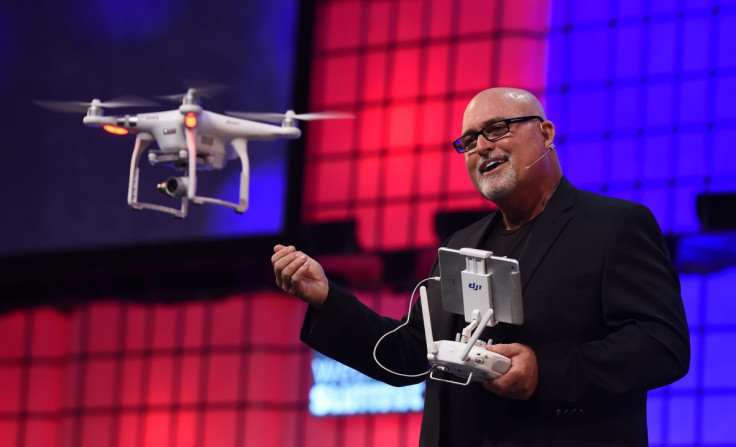Dublin Web Summit: Drones could do your household chores in five years

Drones, the kind that Google hopes to use for air deliveries in 2017, could be ready for household use in five years, according to drone and aerial photography company DJI.
"In three years we've gone from remote-controlled tech to smart tech. They're [drones] now GPS-enabled with flight stabilisation software, so these developments have made it so easy for things to fly straight out of the box," Randy Braun, the global director of product experience at DJI, told IBTimes UK at the Dublin Web Summit.
While small package delivery is being worked on by companies such as Amazon and Google, many others are using drone tech to map out the air space. Drone technology is already being used industrially across many sectors, including agriculture, mining and the military but Braun expects that drones will be put to recreational use soon after.
He said: "As far as recreational use, drones are fun to fly and takes limited amount of skill and interesting to see own house, home and city from the sky at different vantage points." But Braun imagines a reality in which a parent could send out a drone to check on their children in the park or relocate lost reading glasses at home.
"Object identification and voice command [features] could be five years away but you never know, things move quickly," Braun said. "For in-home everyday applications around your house, it would take a little more than five years. Though lots of development needs to be done around 'sense and avoid'."
Randy Braun of DJI showing off an amazing "toy" #websummit #drone pic.twitter.com/PemKDz9mot
— Deborah Weinswig (@debweinswig) November 4, 2015Flying drones does not come without risks. Dangers surrounding widespread use raises concern about violating restrictions surrounding air space across governments and some have fears about personal privacy if the technology is wielded in the wrong hands. Braun said: "I think that it's important for all drone companies work together to push the goodness of drones, raise awareness for safe flying and encourage their users to follow safe guidelines."
Braun stresses that safety features are already built-in. He claims drones made by DJI will not fly within close proximity of airports, while US sports stadiums and government-sensitive buildings such as the White House are marked as no-fly zones within DJI's built-in firmware.
"DJI has done taken the action for safe flying before governments have to come in and govern these rules for us," he said. "Our track record is pretty safe, it's mainly common sense. If you don't feel flying in a certain place."
If you're looking to pick up drone-flying as a hobby, prices range between $650 to $1,250 (£423 to£813). The consumer drone Phantom 3, demoed at the Dublin Web Summit, costs £979 and includes high definition 4K video capability and a 12.6 megapixel camera.
© Copyright IBTimes 2025. All rights reserved.





















